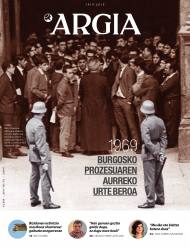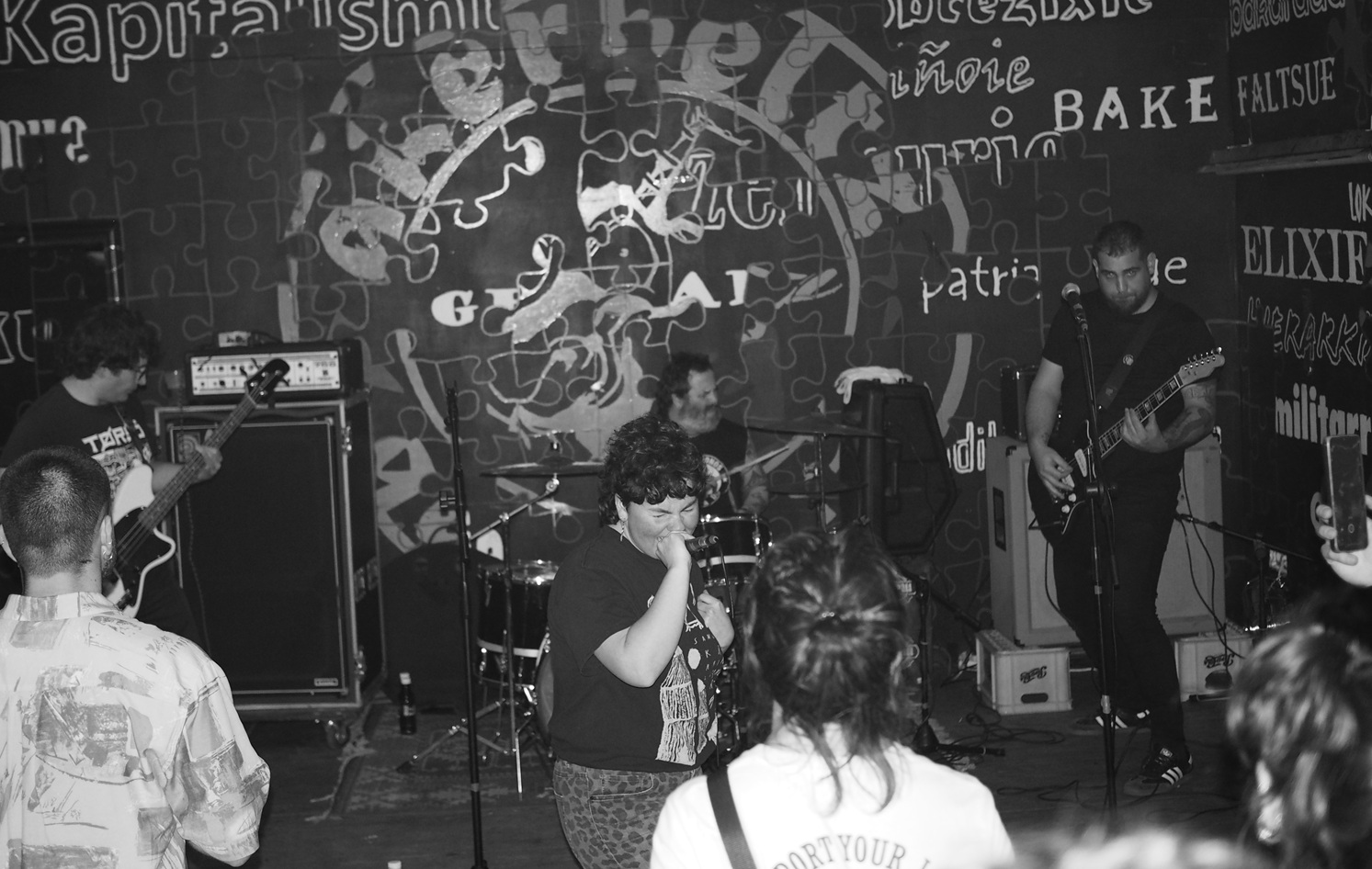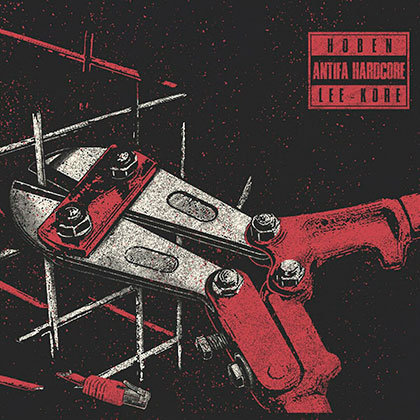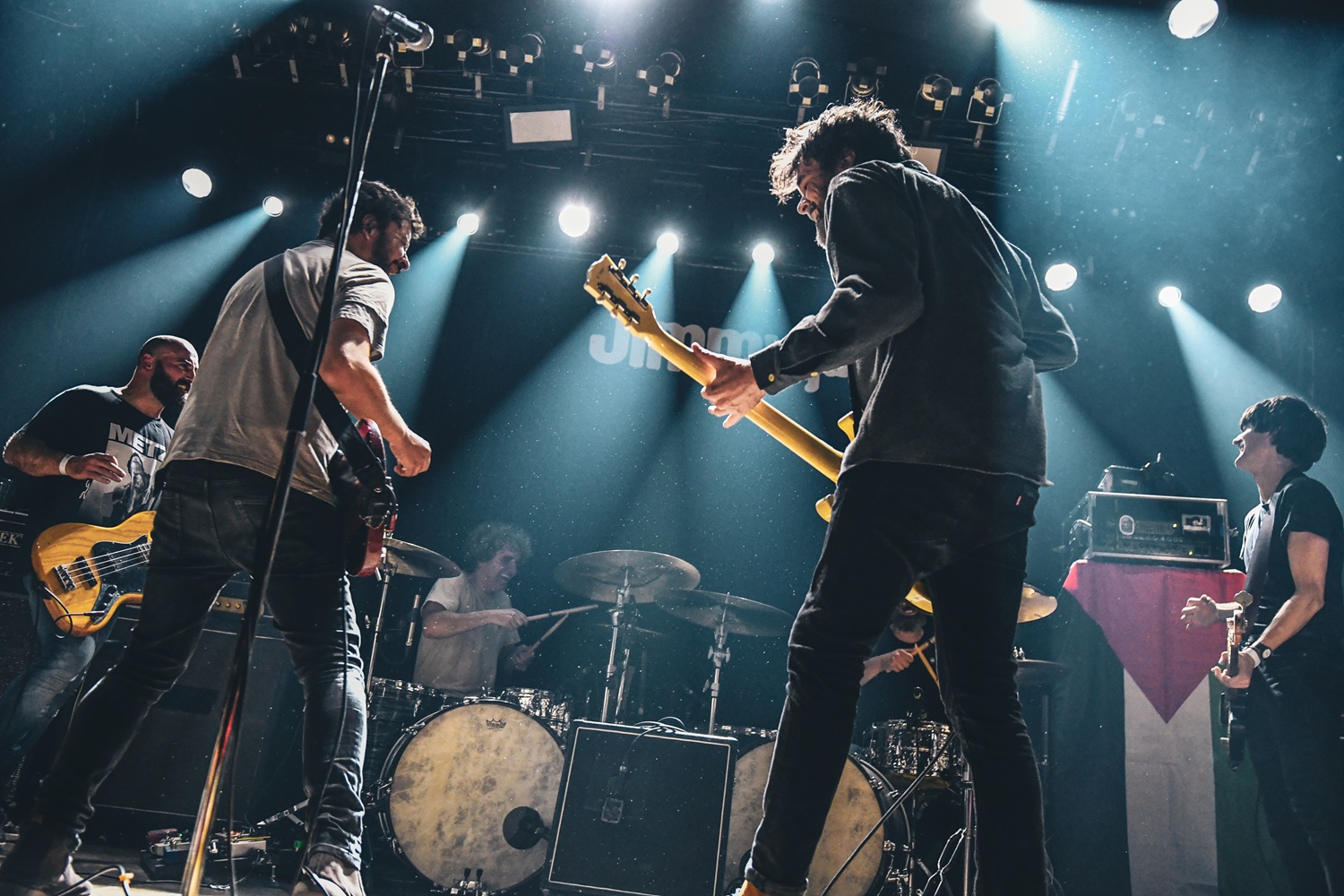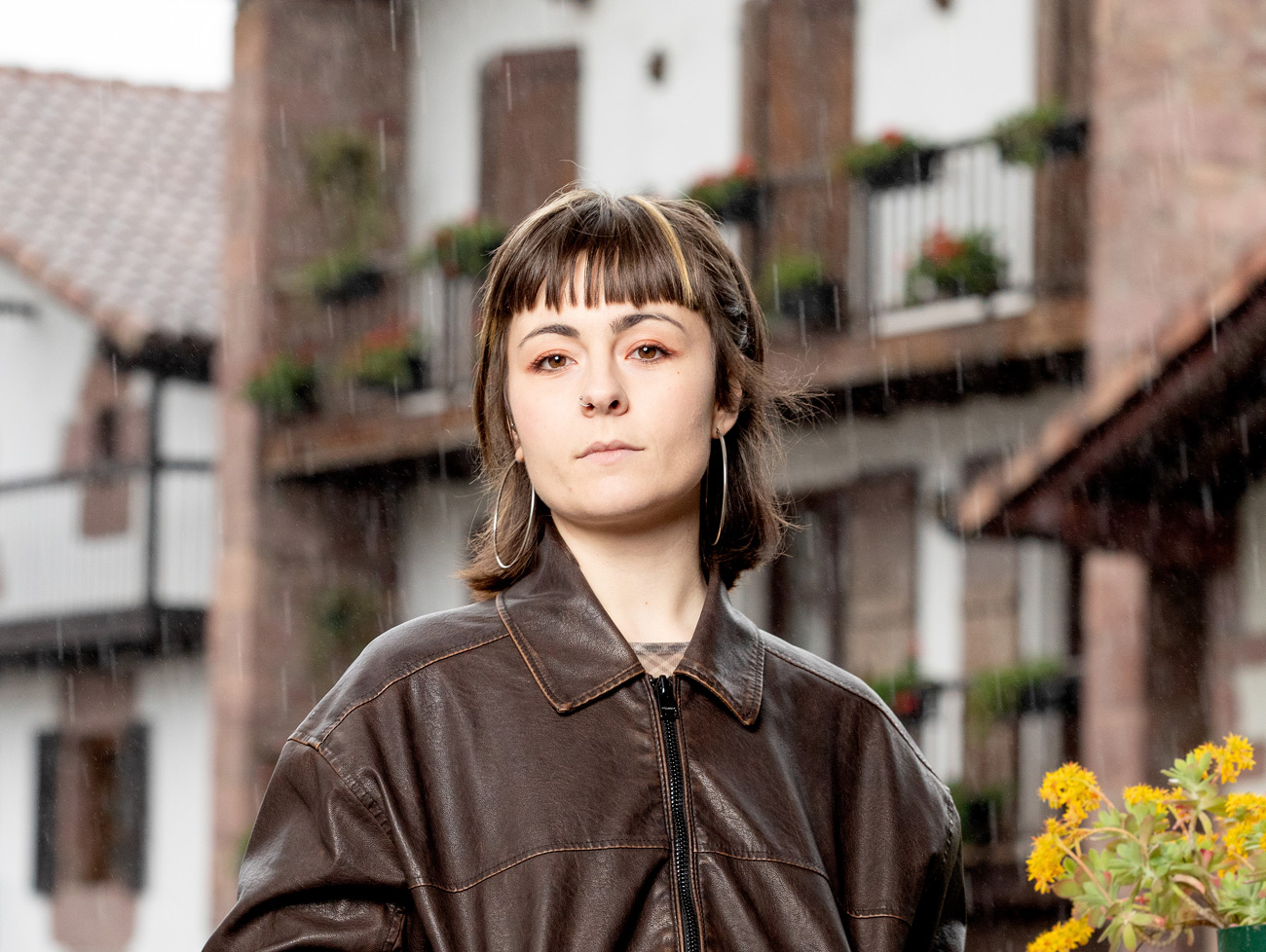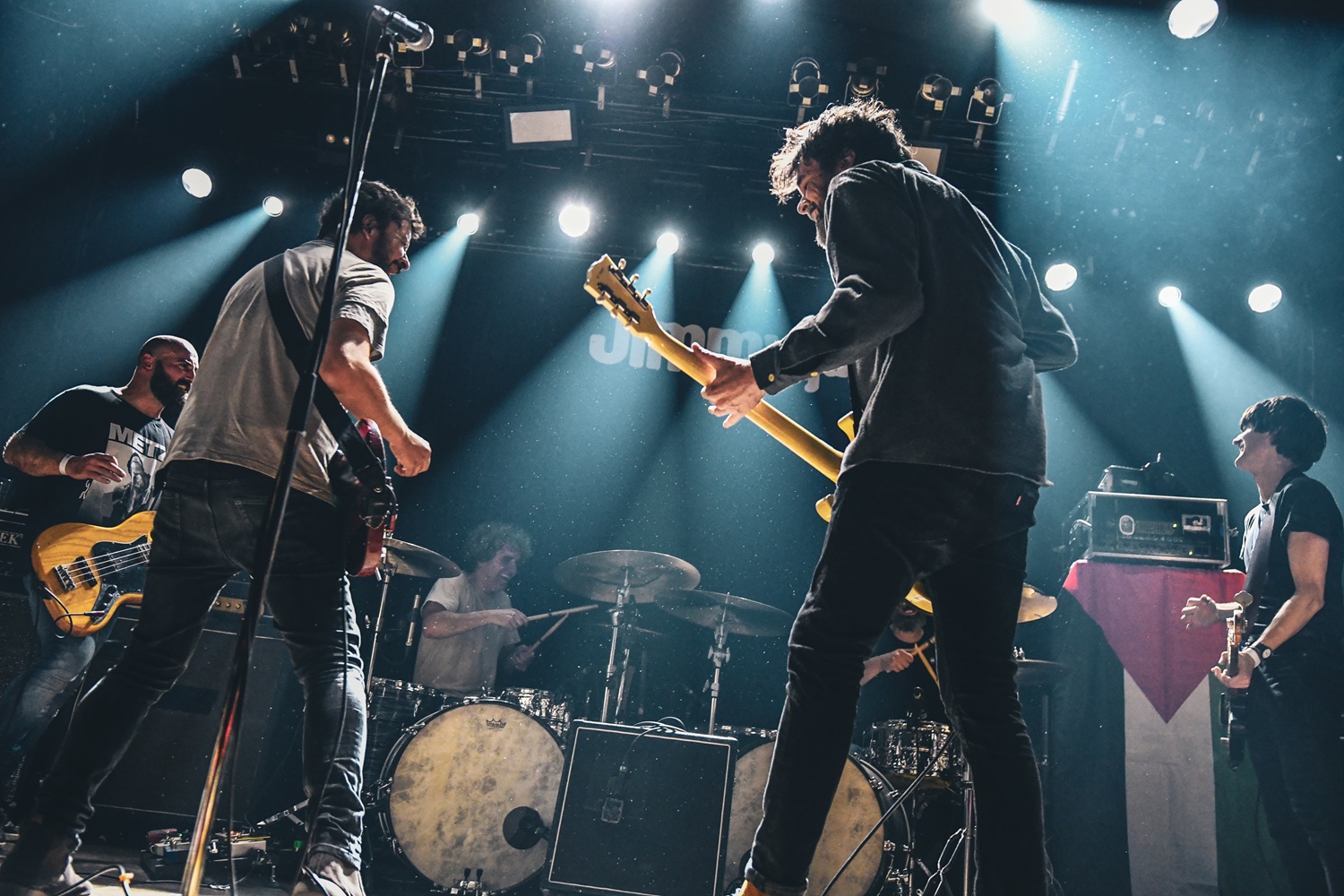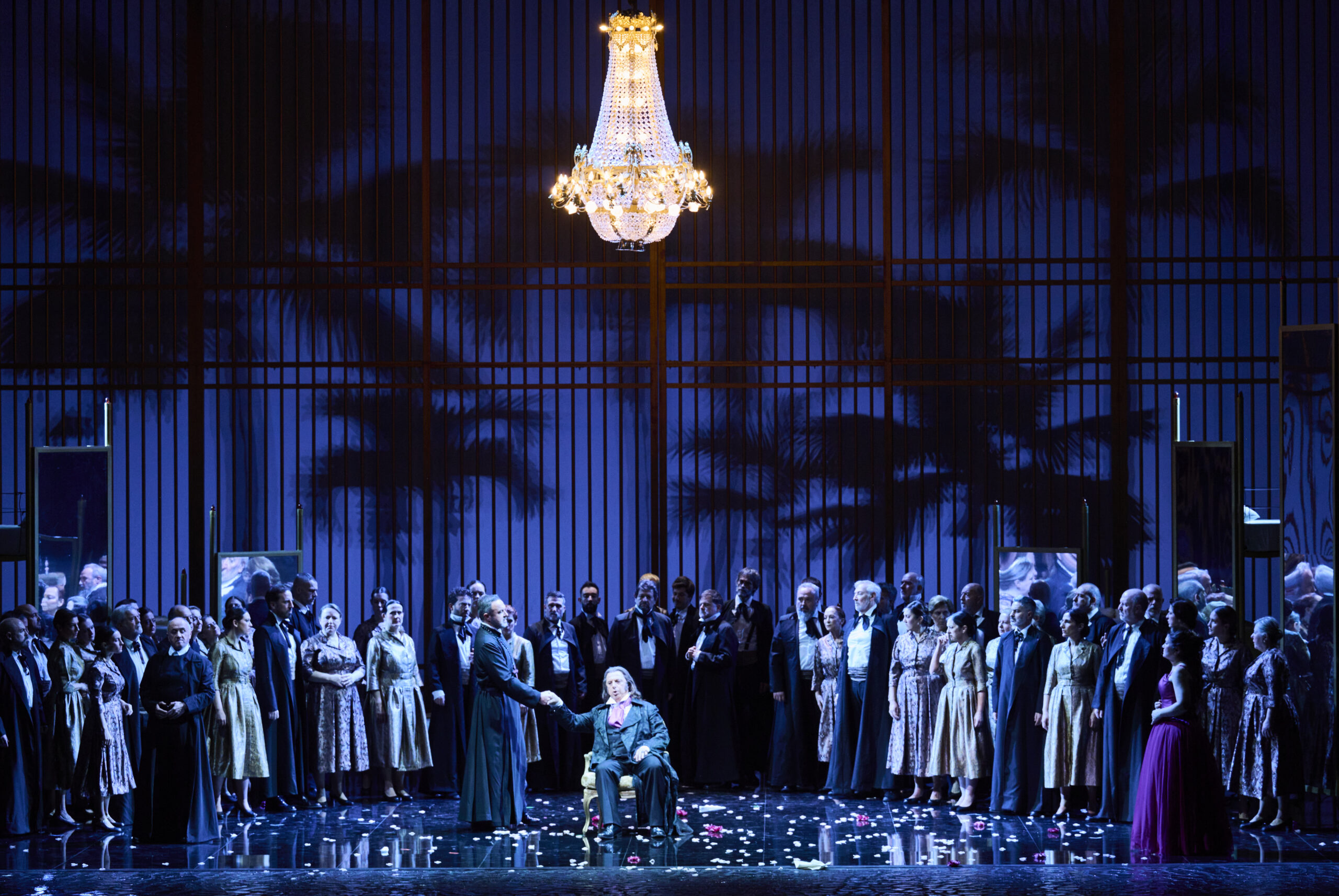"Life and music go at once."
- Breathe music. Playing the battery and singing give it a breath. That's where the challenge lies: how to measure the breath to play and sing the battery at the same time, how to orient the breath. Jupiter Jon has worked his own voices and breaths in recent years. He suffered the first blows with Lisabö for over twenty years. He has participated in his last album, a decade after he left the group.
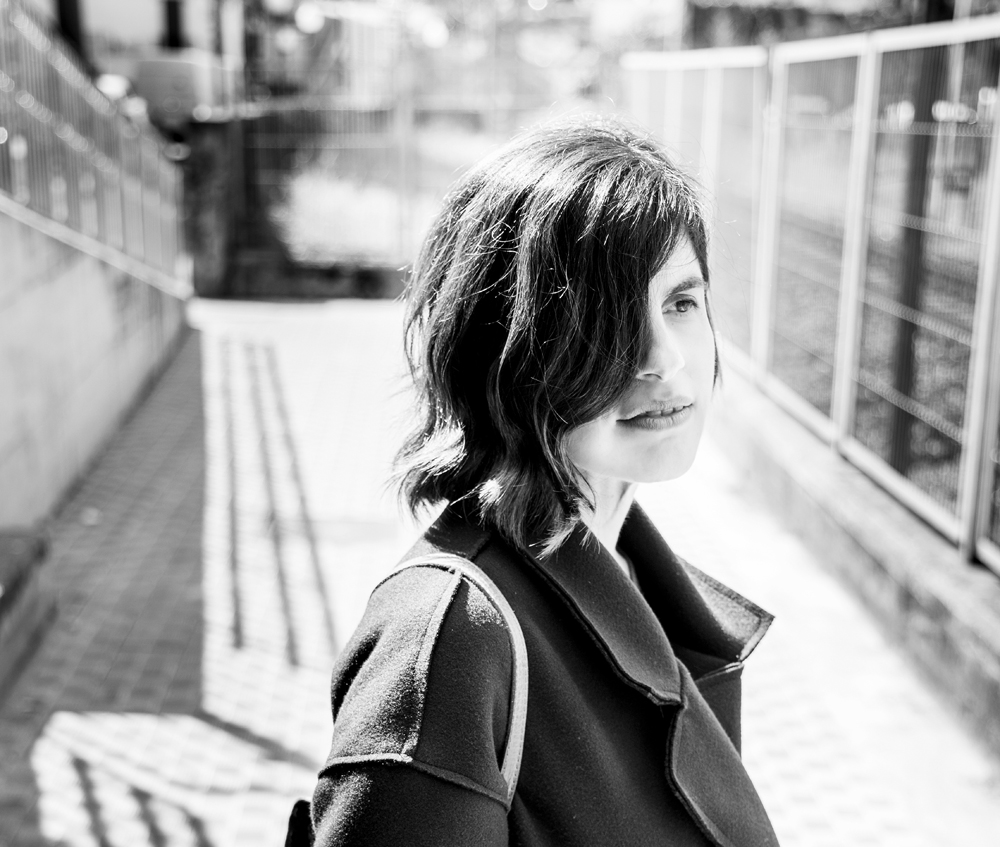
In more than a year, Aida Torres (Avilés, Spain, 1979) also works in a thousand other sauces. From here and from there he has been called to collaborate, to participate in projects of others, and not only as a battery, but also to collaborate with the voices: Javi P3Z, Mursego, Joseba Irazoki, Maite Larburuk… But, perhaps, on Lisabö’s last album where we undress in the steles of beauty, we have touched the battery again, the most special collaboration, the most exciting of recent times.
Have these collaborations served you to discover new Aides?
Yes, it is. Lately, I've had the opportunity to work with very different people, although some of them are moving in the same circle. Everyone has their way of understanding and feeling music; collecting those inputs is beautiful, very interesting. Maite Larburu, for example, comes from classical music. I don't know this musical language and notes that you learn a lot and open music to other parameters. You open your records and boundaries by chance; the contrast is also appealing, our percussions are pretty wild, almost [laughter] in the way of Einstürzende Neubauten, and their songs have a delicate pop, with violin and ...
In the current scene, musicians mix you a lot, you mix them with each other. Is this a characteristic feature of these times?
I believe that there has always been a tendency to mix, and that it is also very enriching. The truth is, I haven't wondered if it would be more, but maybe it would. For example, at Jupiter Jon we are preparing a special collaboration with the Amaren Alabak group. And that's also adding two very different musical universes -- maybe you're right!
What can be said about this project, about this collaboration?
Also in the album Mirilak we made versions of the groups of Bidehuts, on the one hand, and on the other, in the Bidehutsen itself there is a section called Coupages, in which collaborations between different musicians or groups are encouraged. So far only two have been published. With this idea, we wanted to launch a new job. We greatly appreciate the way they sing in Iparralde, the capella, etc., and in the case of the Daughters of the Mother, in addition to the female voices. They got in touch with them and they cheered. We'll take out a kind of Single with two or three songs. The intention is that it should be published at the end of the year. We are now in the process of drafting.
"I give importance to the way we do
things in music, the way we relate them: that's understanding music as a political instrument."
Are you Joseba Irazoki? On the album you have put your voice in three songs. One more step in the search for your own voice?
Joseba had things very clear; in one of the songs that had happened to me, I didn't get very well with my voice, and he proposed to me to use the falsetto, something more operatic; and it was true: I did it and it worked. These exercises open you up to new ways of singing that maybe I just wouldn't have discovered before. Joseba is one of the most ipurative musicians out there today, and the rest also feeds us, influences us.
However, the most special part of recent months has probably been to touch the battery on Lisabö’s new album. Has it been like going home?
Yes, it was very nice to me. In Lisabö we are very close friends, we have many years of friendship. I spent with them a very important part of my life, but then our paths were divided. When they told me that they intended to record a new album and offered me the opportunity to participate in it, because they needed a battery, I thought yes, it would be very nice to re-record with them and return to being with them. It was very special.
Was it your first Lisabö school?
Yes, no doubt. And not just from the musical point of view. All it takes to make music with a group: to live together, to play live, to travel, to support. Lisabö is a musical and collective group; that is, life is gradually becoming more complicated and it is difficult to keep up with a minimum requirement, but Lisabö advances through his musicians’ friends, introducing one or the other. Lisabö shows that, despite the difficulties, it can be done.
What would you musically point out to Lisaböt and what he has given you?
It's not just music, it's also the members of Lisabö. I love you a lot, and your contribution to my life is fundamental. I don't want to do tremendous, but without them, it wouldn't be what I am now.
How did you advertise the album to keep it so hidden? Almost no one knew it before he fired it.
From the beginning, they told me that they wanted to keep it that way, and yes, they kept it secret so that they could work more freely. If you give a few dates, you can have the pressure to finish, and in this way, you have total freedom.
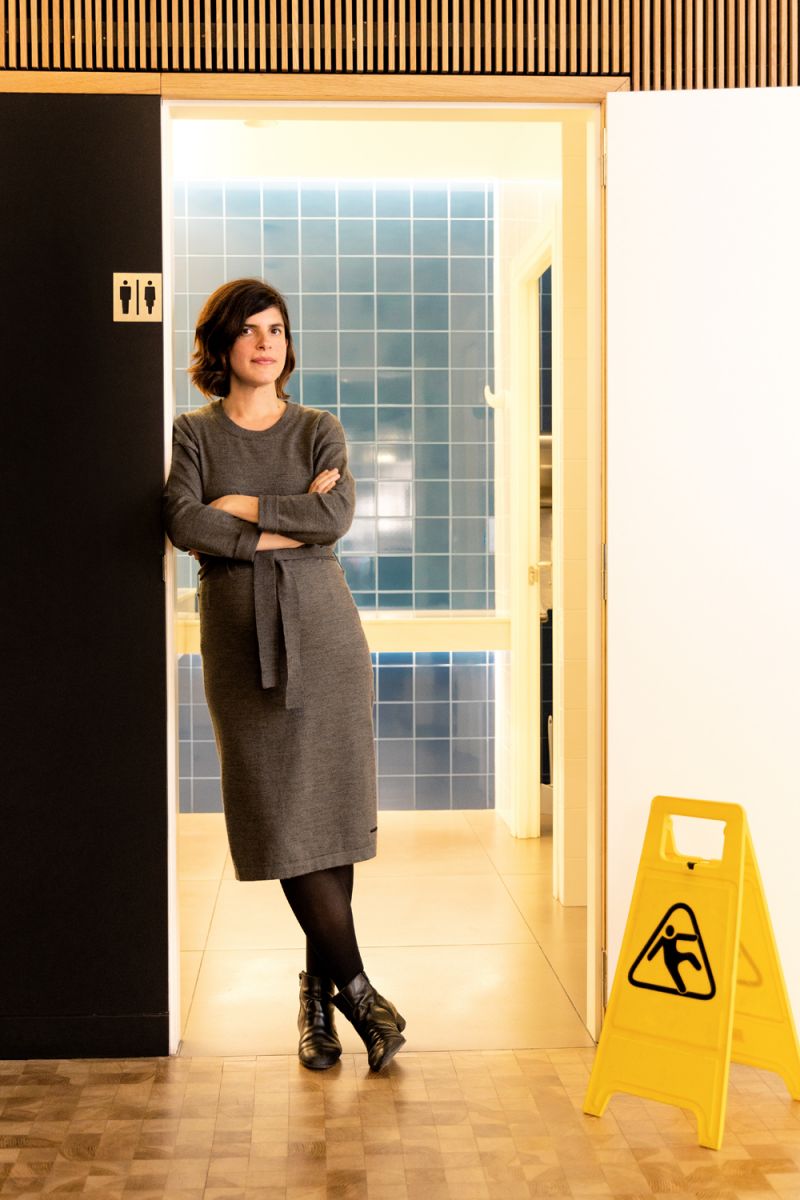
It has taken time to get back into that universe of Lisabö. Did you have to separate from Lisabö to get back to you?
I was in Lisabö for many years. From 1998-1999 we collaborated on the last album by Mikel Laboa – Xoriek 17 – until 2007. But then, my body would ask me for another kind of music. It was a physical thing. I started listening to all sorts of music. I met Baxi Ubeda, the idea of Jupiter Jon came true, and we did it another way. But when Lisabö asked me to re-record, I knew it was for a specific project, it wasn't to be back in the group, it was to record a record, I took it as a meeting of friends. But I didn’t have to commit to introduce it later, for concerts, etc…
Is the direct link with Lisabö totally discarded?
You can never rule it out at all, but now I don't see myself in person. Playing the battery with Lisabö is a very hard job physically, and right now I'm more comfortable with my group, playing with Jupiter. Musically, Lisabö is very strong, very intense. There came a time when I needed other rhythms and sounds to live. Lisabö's is a music that excites a lot, for example. But it's a journey that I can't always make. It must be their time.
What has changed in your musical environment and in your way of understanding music, ever since you left Lisabö today?
Well, it's been a decade and a lot has changed. Speeches have changed a lot. I find it hard to see the music and everything else shared. For me, life and music go at once. Many things have happened in these ten years and I am not the same person, even if it is essentially the same. We're constantly changing, needs are changing too, and music is also going hand in hand. As a drummer, I've searched my path, my personal path. With all my limits, but it's me.
What characteristics does your way of touching and understanding the battery have?
I don't want to act from false humility, but I think I have great limitations, because I'm not a technical drummer, not much less virtuous. People tell me I have a very curious way to play, and yes, it could be, but I am.
You mentioned that music and life go together. In Lisabö he complained of a serious illness. What role did music play when you lived with the disease? Is it topical to say that music is a medication?
The truth is, in those years, I put music aside and I think it was a great silence. So what was best for me was traveling by car. Looking down the window and being on the move was the thing that most relaxed me, so I made several trips with my family. My parents had albums at that time by Bebo Valdés and El Cigala, and the soundtrack by Buena Vista Social Club; they were the albums I heard at that time in the clearest way. I remember them with sweetness when I hear them. But the most present thing was silence.
How did he get to Lisabö?
As I said, we were very fond of hardcore. The three friends formed a group and searched for locals. We met Jabi Manterola, a member of Lisabö, at the parties of Hondarribia. They also wanted to share the place, and so we started to relate.
Did you need a second battery to start rehearsing at the same place?
Lisabö offered a concert in Bergara's Jam room with Fugazi. There they saw that Fugazi was hitting with two batteries, and they found the idea interesting. Lisabö was the only battery in the group. So I was asked to play the battery in the group.
When did music enter your life?
My parents had a bar in Elgoibar, a sort of winery. Fish. When I was a kid, I lived in Eibar, and my family lived between Eibar and Elgoibar. In that bar, there were always vinyl records, and there I have my first musical memories. I started to dedicate myself to music as a teenager.
Would you like to touch the battery from the start?
“Lisabö’s is a music that excites me a lot, for example.
But it's a journey that I can't always make. It must be your time.”
No, that was a coincidence. We formed a group in which my sister was clear that she wanted to play the guitar. Another wanted to play the bass and nobody wanted to sing it. That's when we decided to switch between the drums and the singer.
You've sung a lot lately, in Jupiter Jon and the other collaborations.
Yeah, mostly I started singing on Jupiter Jon, and casually also then. At first we had a singer. It was our fetish singer, and we wanted our Nick Cave to become our Nick Cave, but then we left it and we didn't know what to do. So Baxi and I decided to do it between the two. Singing is a wonderful experience if you are comfortable in your form. And it does a lot. I liked it, I enjoyed it very much and there have also been collaborations.
Have you investigated with your voice or have you been trained?
I took the singing lessons for a year. But then I went to learn, to play on my own. I still have a lot of work to do with my voice. Especially for playing and singing the battery at the same time. Touching the battery requires air, so it is not easy, you must dose it.
You've used the voices in live collaborations with Mursego. Have you ever thought about doing something together?
People have told us that, but we haven't thought about anything. Maite is also very sane… It would be very nice, but at the moment it seems difficult.
You were born in Asturias. At two months you came from Avilés to Eibar first and then to Irun. What has it brought you to discover the Basque for creation?
I'm Euskaldun berri. My sister and I went to Eibar's Model B, but when I went to Irun there was no Model B, and we learned Spanish, also in high school. As a teenager, I spoke in Spanish with my friends, but maybe we met him thanks to music, because we really liked the groups that spoke in Euskera. In this way, I recovered the language, the Basque language. Especially with Dut and Akauzazte. I also started listening to Ana… and we entered another world, another vision of the world.
In Jupiter Jon, does Euskera give you anything else?
Yes, it is. Every language has its worldview, its world, its culture -- and when you use a language, you make a world. We speak mostly in Basque, but there are songs in Spanish, which I do, and for me they are different universes, also in terms of sonority: other sounds, other syllables… they take you to different sites.
As we have already mentioned, speeches, concerns have changed a great deal in the last decade. Have the speeches of feminisms influenced you as a battery on the consciousness of the body, on the staging?
Yeah, that's also what I've changed my view of the world. As a woman, the challenge has been to touch the battery from the very beginning. Almost all hardcore groups have been made up of men, and so have the music environment: promoters, technicians, organizers… And there you have to do your site in some way. At first he said: “I am one more.” And I still think that in part today, but on the other hand, I'm a woman, and I've acquired that awareness. These issues are now so serious, that brings me to life. Jupiter Jon shows up at some places in Astigarraga, where more and more musician women are seen.
Aposapo + Mäte + Daño Dolor
When: April 5th.
In which: In the Youth Center of Markina-Xemein.
---------------------------------------------------------
I’ve made my way to the cheese house with the shopping cart full of vegetables, and we’ve spent the evening cutting... [+]
Poliorkêtês
Kerobia
Autoekoiztua, 2025
--------------------------------------------------------
Azken aldian, lerrootan asko nabil hausnartzen musikak izan beharko lukeen “misio historikoaz” eta abarrez. Eta, nolabait, zer egin beharko lukeen... [+]
On March 7, the 150th anniversary of the birth of Maurice Ravel, the best Basque composer of all time. And in LA LUZ a tribute was paid to this composer, recalling the influence of the famous Bolero on the collective imagination.
By chance, Deutsche Grammophon has just released... [+]
Olatz Salvador
Noiz: martxoaren 15ean.
Non: Deustuko jaietan.
------------------------------------------------
Martxoak beti du deustuarrontzat kolore berezia; urtero ospatzen ditugu jaiak, San Jose egunaren bueltan. Bi asteburu bete festa, eta urtetik urtera Deustuko... [+]
Antifa hardcore
Lee-Kore + Hoben
Autoekoizpena
---------------------------------------------------------
Tamalez ez da ohikoa Arrasaten hardcore kontzertuak egitea, bestelako musika eszenak nagusitzen direlako. Hala bada, joan den larunbatean herriko gazte batzuen... [+]
Hunkituta eta ilusioz egin dut Iruñetik Oronozerako bidea. Maite dut Olaia entzutea, baita hizketan ere. Herriko farmaziaren ondoan autoa utzi eta balkoitik agurtu naute hark eta bere zakur Arak. Grabagailua martxan jarri aurretik, bueltaxka egin dugu frontoira eta Arak... [+]
Bizitza eztia
Verde Prato
Plan B Records, 2024
--------------------------------------------------------------
Ousmane Sembène zinemagile senegaldar ospetsuari galdetu zioten ea bere pelikulak Europan ulertzen ote ziren. Erantzuna, epikoa: “Izan gaitezen... [+]
Inoren Ero Ni + Lisabö
Noiz: martxoaren 14an.
Non: Gasteizko Jimmy Jazz aretoan.
----------------------------------------------------
Izotz-arriskuaren seinalea autoko pantailatxoan. Urkiola, bere mendilerro eta baso. Kontzertuetara bideko ohiko errituala: Inoren... [+]
FITXA
Zer: OLBEk antolatutako Gaetano Donizettiren ‘La favorite’ opera.
Nork: Euskadiko Orkestra Sinfonikoak (zuzendaria: Riccardo Frizza) eta Bilboko Operaren Abesbatzak (zuzendaria: Boris Dujin).
Noiz: otsailaren 18an.
Non: Bilboko Euskalduna Jauregian.









